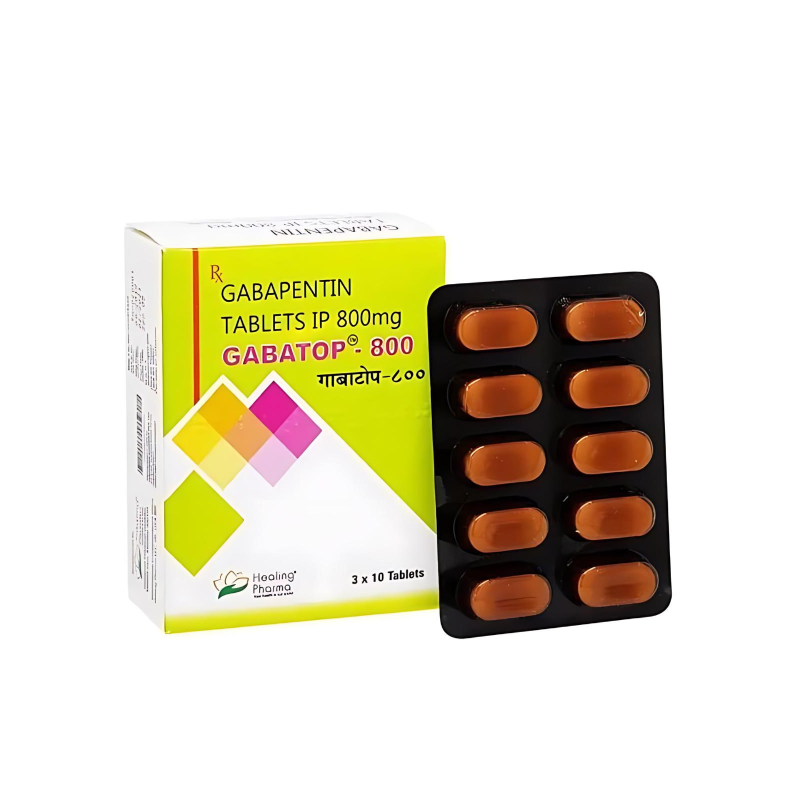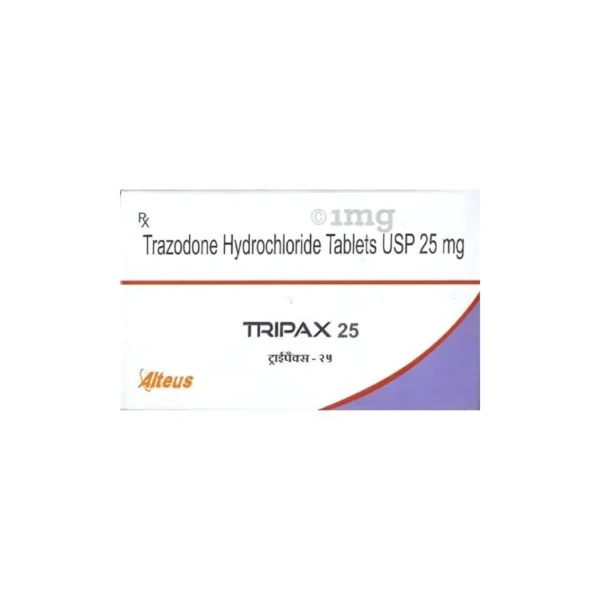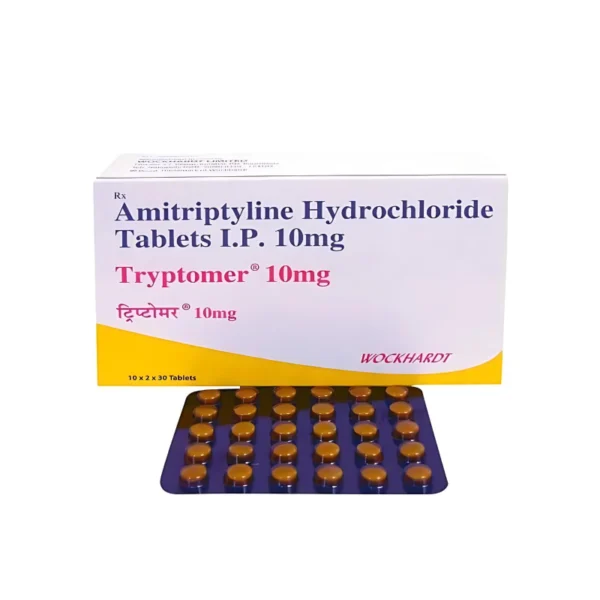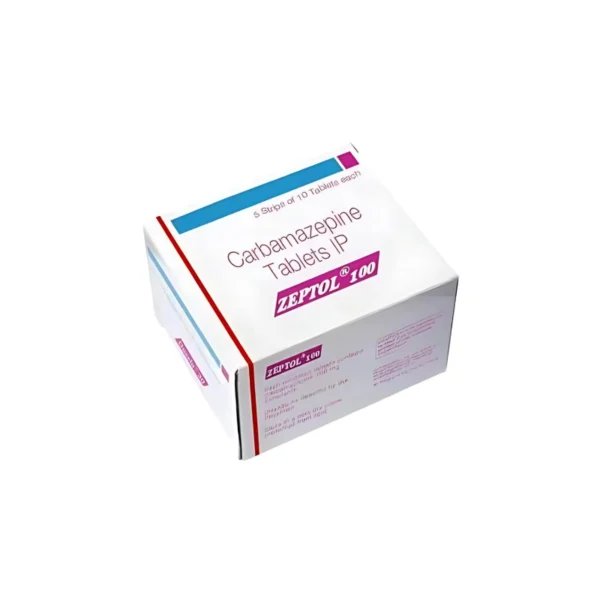FLAT 10% OFF ON YOUR FIRST ORDER. USE IVER10
Gabapentin Capsules
Price range: $70.00 through $330.00
Gabapentin Tablet is a widely used medication for managing neuropathic pain caused by diabetes, shingles, or spinal cord injuries, and is also effective in treating certain forms of epilepsy. As an anti-epileptic, Gabapentin works by calming nerve activity in the brain and blocking pain signals from damaged nerves. Patients using it consistently may experience improved pain relief, mood, and sleep quality. Side effects such as dizziness or fatigue are typically mild and temporary.
- Buy 2 and get Flat 15% Off. Use B2SAVE15
- Buy 3 and get Flat 20% Off. Use B3SAVE20
Gabapentin Tablet – For Neuropathic Pain & Epilepsy Treatment
Gabapentin Tablet is an effective anti-epileptic medication primarily used to relieve nerve pain (neuropathic pain) caused by conditions like diabetes, shingles, or spinal cord injuries. It also helps control certain types of seizures when used with other medications. This medicine works by stabilizing abnormal electrical activity in the brain and blocking pain signals from damaged nerves. For optimal results, take Gabapentin at the same time daily, with or without food, as prescribed. While most side effects like drowsiness or dizziness are mild and temporary, it’s important to follow your doctor’s dosage instructions carefully. Never stop this medication suddenly without medical advice.
Uses of Gabapentin Tablet:
- Treatment of neuropathic pain (nerve damage pain)
- Management of epilepsy and seizures (as combination therapy)
Benefits of Gabapentin Tablet:
- Effectively reduces chronic nerve pain from diabetes, shingles or spinal injuries
- Improves mood, sleep quality and daily functioning in pain patients
- Blocks abnormal pain signals between damaged nerves and brain
- Helps control seizures when used with other anti-epileptic drugs
- Shows results within weeks when taken consistently
Side Effects of Gabapentin Tablet:
- Fatigue
- Dizziness
- Sleepiness
- Fever
- Viral infections
- Changes in appetite
- Visual disturbances
- Joint/muscle pain
- Urinary tract infections
- Ear infections (Otitis media)
- Respiratory infections
- Decreased white blood cell count
- Facial swelling
- Vertigo
- Impotence
How to Use Gabapentin Tablet?
Take it exactly as prescribed, usually starting with a low dose that’s gradually increased. Swallow the tablet whole with water – do not chew, crush or break it. Can be taken with or without food, but maintaining a fixed schedule improves effectiveness. Continue taking even if you feel better, until your doctor advises to stop.
How Gabapentin Tablet Works?
It is an anti-epileptic that calms overactive nerves in the brain to prevent seizures. For nerve pain, it blocks pain signals traveling through damaged nerves to the brain. This dual action makes it effective for both neuropathic pain and epilepsy management.
Safety Advice:
- Alcohol: Unsafe – Causes severe drowsiness
- Pregnancy: Consult doctor – Potential fetal risk
- Breastfeeding: Probably safe but monitor baby for sleepiness
- Driving: Unsafe – May impair alertness
- Kidney Disease: Use with caution – Dose adjustment needed
- Liver Disease: Consult doctor – Limited safety data
What If You Missed a Dose?
Take the missed dose as soon as remembered. If it’s almost time for the next dose, skip the missed one. Never take double doses.
Drug Interactions:
Gabapentin may interact with:
- Antacids containing sodium bicarbonate/citrate (take 2+ hours apart)
- Tramadol (may increase drowsiness and breathing problems)
- Blood thinners, birth control pills, certain antibiotics
Always inform your doctor about all medications you’re taking.
FAQs:
Q1. How soon does Gabapentin work for nerve pain?
Most patients notice improvement within 1-2 weeks, though some may feel effects sooner. Consistent use is key.
Q2. Does Gabapentin cause weight gain?
Yes, increased appetite is common. Maintain a balanced diet and exercise regularly to manage weight.
Q3. How long must I take Gabapentin?
Duration varies – nerve pain may require months, while epilepsy treatment often continues for years.
Q4. What are Gabapentin’s serious side effects?
Watch for: jaundice (yellow skin/eyes), breathing difficulties, suicidal thoughts, unusual bleeding, or severe stomach pain.
Q5. Is Gabapentin addictive?
Not when used as prescribed, but misuse can lead to dependence.
Q6. Can I take Gabapentin only when in pain?
No – it must be taken regularly to control nerve pain effectively.
Q7. What happens if I overdose?
Overdose may cause severe drowsiness, dizziness or speech problems. Seek immediate medical help.
Q8. What should I tell my doctor before taking Gabapentin?
Inform about: kidney/liver problems, pregnancy plans, breastfeeding, and all other medications (including OTC drugs).
| Strength | 100 mg, 300 mg, 400 mg, 600 mg, 800 mg |
|---|---|
| Pack Size | 100 Tablets, 200 Tablets, 300 Tablets, 400 Tablets |










Reviews
There are no reviews yet.